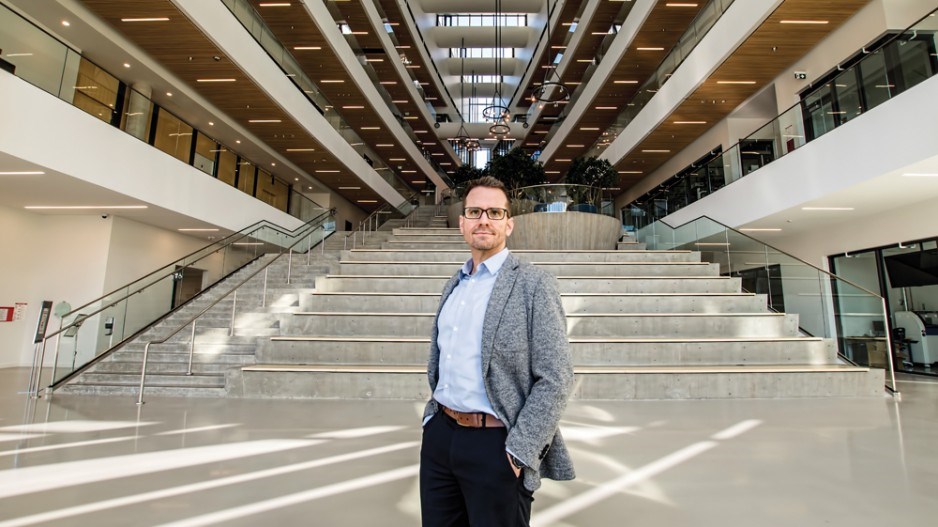Later this year, Simon Fraser University (SFU) will produce its first group of undergraduates with engineering degrees tailored to clean technology and the energy transition.
The graduates will have bachelor’s degrees in Applied Sciences in Sustainable Energy Engineering as part of the first program of its kind in Canada.
“That is a new credential that was created through the Ministry of Advanced Education, Skills and Training,” said Kevin Oldknow, director of SFU’s School of Sustainable Energy Engineering.
The program started in 2019 at a new campus in Surrey, thanks to $90 million in federal and provincial grants and $30 million from SFU and its donors.
SFU carried out a countrywide survey of about 90 clean-technology companies several years ago to determine whether existing engineering programs met their needs. Fifty per cent said they needed engineers with specialization in clean energy and clean technology.
“SFU had been thinking about a program in energy systems in the faculty of applied science for a number of years,” Oldknow said. “We really focused on where the cleantech sector is heading and what sort of skills that sector was going to need as it grows.
“It’s really all about the activities that go along with harvesting, storage, transmission and use of energy.”
He added that some of the areas with the greatest demand for engineers with sustainable energy expertise include clean transportation and smart grid power distribution. The program crosses over with other engineering disciplines, including mechanical, electrical, materials and chemical engineering.
The school has a faculty of 16, and its enrolment sits at 145 undergraduates – with 200 expected by the fall – and 40 graduate students.
Engineering has long been a male-dominated sector, but the school pushed for greater inclusion of women from its inception.
“We’ve ended up, at this point, with female enrolment levels at 44%,” Oldknow said. “We’re extremely happy with that.”
Oldknow expects there will be a big demand for graduates in B.C.’s cleantech sector.
He also expects a demand from utilities, like BC Hydro, and public transit operators. Some graduates might also find jobs in government energy policy.
“I think a number of our students are really interested in becoming expert enough in energy systems that they can jump in and make a difference through informed policy making,” Oldknow said. “So I think government sector will be another stream.”
In addition to bachelor degree programs, the school offers master’s and doctoral degrees.
As for research, the school has four main “buckets” of focus. One is clean transportation, including hydrogen systems and production, and railway transportation.
Other areas of research include advanced materials and power distribution, which includes distributed energy and smart grid technology. The fourth research area is energy system modelling and simulation s.
Industry will have access to graduate students through Mitacs, which pairs industry with graduate students in sciences and engineering, and Natural Sciences and Engineering Research Council of Canada.
“It’s quite common and quite typical for engineering programs to include courses from faculty of science – physics, chemistry, math and so on,” Oldknow said. “But what we’ve done, which is somewhat unique, is bring in curriculum directly from the faculty of environment and the school of business to help establish this lens through which we need to look if we’re really going to think about sustainable energy systems.” •




